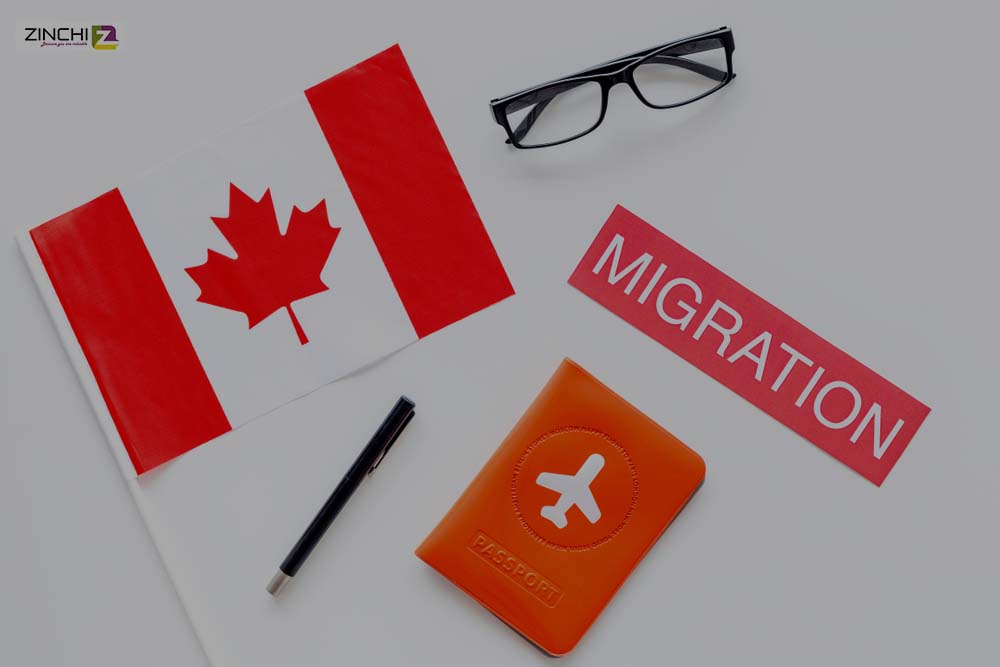
Table of Contents
Introduction
Canada is one of the most popular destinations for immigrants from all over the world. The country offers a high quality of life, a diverse and multicultural society, a stable and democratic government, and a strong economy. But how can you become a part of this amazing country? One of the best ways is to apply for permanent residency (PR) in Canada.
Permanent residency is a legal status that grants you the right to live, work and study in Canada indefinitely, as long as you meet certain conditions. You also get access to many benefits and opportunities that Canadian citizens enjoy, such as health care, education, social services, and more. In this blog post, we will explore some of the benefits of becoming a permanent resident of Canada in 2023.
Health Care
As a permanent resident in Canada, you will have access to Canada’s free health care benefits⁴. A distant dream in some countries, Canada offers PRs world-class health care, and they need not spend even a single penny. If your family members immigrated with you, they will also be able to use Canada’s state-of-the-art services and facilities⁶.
Canada’s health care system is funded by taxes and administered by each province and territory. It covers essential medical services such as doctor visits, hospital stays, surgeries, prescriptions, and more. Some provinces and territories may also offer additional benefits such as dental care, vision care, or prescription drug coverage².
However, you should be aware that some provinces and territories may impose a waiting period of up to three months before you can access their health care coverage. During this time, you are responsible for paying for any medical expenses out of your own pocket. Therefore, it is advisable to get private health insurance until your provincial or territorial coverage kicks in².
Education
Another benefit of becoming a permanent resident of Canada is the opportunity to access free education up to the age of 18 in the Canadian public school system³. Canada has one of the best education systems in the world, with high standards of teaching and learning. Your children will be able to attend school in any province or territory of your choice, and learn in English or French (or both).
If you or your children want to pursue higher education, you will also benefit from lower tuition fees as a permanent resident compared to international students. For example, the McGill University tuition fees for 2019-2020 are $2,544 for a Quebec resident, $7,940 for other Canadians and $18,110-$48,747 for international students, depending on the program of study. As you can see, the difference is significant.
Canada also offers many scholarships and grants for permanent residents who want to further their education. You can explore various options on the Government of Canada website or on the websites of the universities or colleges you are interested in.
Work and Income
As a permanent resident of Canada, you have the freedom to work anywhere in Canada’s provinces that Canada offers¹. You can choose from a variety of occupations and industries that suit your skills and interests. You can also start your own business or become self-employed if you wish.
Canada has a strong and resilient economy that offers many opportunities for growth and innovation. The country has a low unemployment rate and a high minimum wage compared to many other countries. You will also benefit from various social services and benefits that Canadian citizens receive, such as Employment Insurance, Tax-Free Savings Account, Working Income Tax Benefit, Child Tax Benefit and more³.
As a permanent resident, you are also required to pay taxes at federal, provincial and municipal levels. Income tax is imposed on the basis of residency rather than citizenship. After becoming a permanent resident an individual would be required to pay Canadian taxes on worldwide income¹. However, Canada has tax treaties with many countries to avoid double taxation.
Citizenship
One of the most attractive benefits of becoming a permanent resident of Canada is the possibility to apply for Canadian citizenship after meeting certain requirements. Canadian citizenship gives you the full rights and responsibilities of being a member of the Canadian society. You will be able to vote or run for political office, hold some jobs that need a high-level security clearance, travel with a Canadian passport, and more².
To apply for Canadian citizenship, you must have lived in Canada for at least three out of the last five years as a permanent resident. You must also pass a citizenship test that assesses your knowledge of Canada’s history, culture, values, and laws. You must also prove your ability in English or French (or both), which are the official languages of Canada.
Becoming a Canadian citizen does not mean that you have to give up your original citizenship. Canada allows dual citizenship (or multiple citizenship), which means that you can be a citizen of more than one country at the same time. However, you should check the laws of your country of origin before applying for Canadian citizenship, as some countries do not allow dual citizenship or have certain conditions for it.
Other Benefits
There are many other benefits of becoming a permanent resident of Canada that we have not covered in this blog post. Some of them include:
- Protection under Canadian law and the Canadian Charter of Rights and Freedoms². As a permanent resident, you have the same rights and freedoms as Canadian citizens, such as freedom of expression, religion, association, and movement. You also have the right to a fair trial, to be presumed innocent until proven guilty, and to be free from discrimination and harassment.
- Ability to sponsor your eligible family members¹. As a permanent resident, you can sponsor your spouse, partner, dependent children, parents, grandparents, and other relatives to join you in Canada. You must meet certain income and other requirements to be eligible to sponsor your family members.
- Access to cultural diversity and natural beauty. Canada is a country that celebrates its diversity and multiculturalism. You will be able to experience different cultures, languages, cuisines, festivals, and traditions from all over the world. You will also be able to enjoy the natural beauty of Canada’s landscapes, wildlife, and climate. Canada has something for everyone, whether you prefer urban or rural settings, mountains or oceans, winter or summer.
Conclusion
As you can see, becoming a permanent resident of Canada in 2023 has many benefits that can enhance your quality of life and your future prospects. If you are interested in applying for permanent residency in Canada, you should start preparing your application as soon as possible. There are many immigration programs and pathways that you can choose from depending on your situation and goals.
You can find more information on the Government of Canada website or consult an immigration expert who can guide you through the process. We hope this blog post has given you some insights into the benefits of becoming a permanent resident of Canada in 2023. We wish you all the best in your journey!
FAQ

Q: What is permanent residency in Canada?
A: Permanent residency is a legal status that grants you the right to live, work and study in Canada indefinitely, as long as you meet certain conditions.
Q: How can I apply for permanent residency in Canada?
A: There are many immigration programs and pathways that you can choose from depending on your situation and goals. You can find more information on the Government of Canada website or consult an immigration expert who can guide you through the process.
Q: What are the benefits of becoming a permanent resident of Canada?
A: Some of the benefits of becoming a permanent resident of Canada include:
- Access to free health care and education
- Lower tuition fees for higher education
- Freedom to work and move anywhere in Canada
- Ability to apply for Canadian citizenship
- Protection under Canadian law and the Charter of Rights and Freedoms
- Ability to sponsor your eligible family members
- Access to cultural diversity and natural beauty
Q: What are the requirements to become a permanent resident of Canada?
A: The requirements to become a permanent resident of Canada vary depending on the immigration program or pathway you choose. However, some of the common requirements include:
- Having a valid passport or travel document
- Having a medical exam and a police check
- Having sufficient funds to support yourself and your family
- Having language skills in English or French (or both)
- Having education, work experience, or other qualifications that match the program or pathway
Q: How long does it take to become a permanent resident of Canada?
A: The processing time to become a permanent resident of Canada depends on several factors, such as the immigration program or pathway you choose, the completeness and accuracy of your application, the volume of applications received, and the country of origin. You can check the current processing times on the Government of Canada website.




